Song Dynasty (960- 1279) Military Overview Part 4- Homefront: Song- Jin Wars: 宋代军事概要 4- 宋金战争
Music: Northern Grasslands
A SHATTERED BALANCE
In the year 1100 a new Song Emperor ascended the throne heralding the new century: Huizong. The 1100s began on a somewhat auspicious note for the Song dynasty.
At the tail end of the previous century the Song had finally caught its perennial disturber of peace- the Tangut Western Xia at a critical disadvantage and secured an advantageous position of strength over it. The Song would achieve its greatest territorial extent in this era. It's economic projection was optimistic, in the previous century alone, the Song population had doubled. However, they would not know this golden age would soon be scattered to the wind.
The 3 Kingdoms of the 10th and 11th century China: Northern Song (Red) and its 2 main regional rivals: the Khitan- led Liao Dynasty (Gold) to its northeast, and the Tangut- led kingdom of Xixia (lit. "Western Xia": in Gray) in the northwest.
Northern Song capital Kaifeng. During the Song commerce and learning blossomed across the realm. Technologically Song dynasty took China to new heights. Though externally hammered by persistent rivals, Northern Song China's population doubled in size between the 10th and 11th centuries. What's more with internal stability its economy exploded and flourished to immense levels, Song dynasty became the richest state in the world, as well as continuously one of the most scientifically advanced.
Major peasant uprisings during Huizong's rule in Shandong and the coastal hinterlands around Hangzhou. In Shandong the charismatic Song Jiang would lead a band of outlaws- based in Mount Liang and storm several cities in the area. They briefly dominated the vast plume grass- dotted marshes and a highly stylized account of these swashbuckling outlaws was turned into the Chinese epic "Water Margin." Song Jiang's rebellion was noted because of proximity to the imperial heartland and capital itself near Kaifeng. In the south Fang La fostered a massive rebellion that swiftly blanketed the south around Jiangsu & Zhejiang region and was linked to wide Manichean support.
While those rebellions did not last long and were crushed by Song expeditions- or capture of key rebels, another major rebellion outside of the Song borders would shatter the precarious balance of the 3 empires of Liao, Xia, and Song. In 1115, the Jurchen vassals of Liao rebelled in full force and declared their own dynasty: the Jin 金 (lit. "Gold".) For a tantalizing moment it looked like Liao~ the century long nemesis of the Song since the conception of the dynasty would be resoundingly toppled.
Ancestors of the Manchus and hailing from what would be referred in the later eras as Manchuria the Jurchens rebelled against their Khitan (Liao) overlords and declared their own Jin dynasty. The impunity of declaring one's own dynasty equaled treason and if crusted would result in the extermination of the ruling tribe's lineage. For the newborn Jin it was do or die.
Sensing incomparable opportunity, Huizong quickly dispatched envoys and crossed the Bohai Sea and forged a common alliance with the Jin. Both pledged they would do their part in destroying the Liao and then to sweeten the deal the Jin agreed that the contested Sixteen Prefectures: a vital stretch of border prefectures dotted with well guarded- mountain passes would be returned to the Song. Both then attacked Liao with vigor. However, while the Song's own advances fumbled and did not pick up momentum, the Jin blitzed against the Liao and dealt Liao a series of irreparable devastating defeats.
Music: Plan of Attack
Soon, the Liao heartland was overrun and its entire court and immemorable of its clans took flight toward the west. In the distant west in today's Xinjiang Province and Khwarazm, the remnants of the Liao would forge a new state called Western Liao- or more commonly known in the west as Qara Khitai. But as far as in East Asia, in what had been a balancing act of 3 empires: the Liao: which had been a constant fixture in the politics of this age as far back as the Five Dynasties and Ten Kingdoms period, with ancestors that centuries prior clashed with the Tang at its height~ was gone in the blink of an eye.
.jpg)
In less than a decade the insurgent Jurchens had utterly displaced the Liao. The Jin also managed to capture most of the Sixteen Prefectures, in the end redrafted the pre-war promise and only giving the Song 7 of of the 16 prefectures: forcing the Song to pay a hefty annual tribute plus an exorbitant one time tribute to the Jin. The uneasy peace between the two states soon shattered. Jin invaded Song in 2 major prongs in November 1125, one in the west down the precarious Taihang Mountains in Shanxi which aimed for Luoyang and another in the east down Hebei that aimed for the Song capital of Kaifeng.
A New Enemy: Jurchen Jin Dynasty Tiefutu or "Iron Pagodas" 铁浮图. Alternately they were translated as "Iron Buddhas," encased almost completely in armor save their eyes and hands these cataphracts were a powerful fist of the Jin conquerors. Deployed in the thousands, their charges were devastating and more fanciful versions recorded that in order to maximize a charge each 3 fully armored horsemen would tie ropes or leather strings between the riders to mow down any enemy infantry who stood between them- this formation was called the Guizi Ma 拐子马 (though this version- was doubted by later historians and is almost certainly not true.)
Of their tactics: 赵彦卫 Zhao Yanwei, a Song chronicler wrote: "The horsemen would make use of a deep wedged array, after plunging into the ranks of their foes would promptly retreat in a burst of speed, all the while arranging itself to stalk or encircle the enemy formation in a circular array for a while, while keeping an eye for another opportunity for a charge, and if situation demanded, they would dismount and fight as heavy infantry."
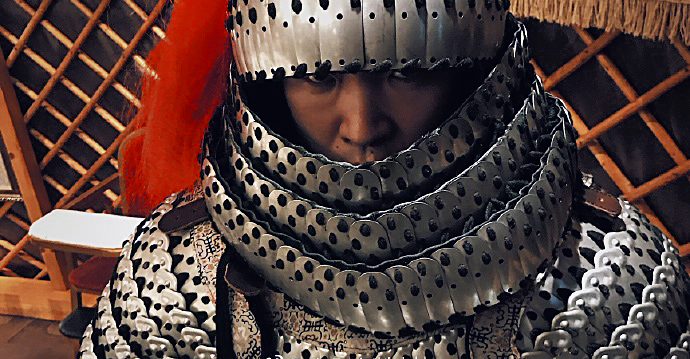.jpg)
The first siege of Kaifeng Song defenders managed to use weapons that shocked the Jin. Song deployed zhentianlei 震天雷 or "Heaven Quaking Thunder (Bombs)"- bombs filled with gunpowder against the besiegers. Song had been documented to use gunpowder powered fire arrows since the founding of the dynasty, and recorded simple bombs in Wujing Zongyao of 1044. The bombs caused a lively terror against the Jin lines and scared their horses.
The garrison in the mountainous Shanxi held on tenaciously at Taiyuan and kept the western prong from reaching Luoyang. Although the garrison did not expect war to break out, they repelled the Jin besieger for over 260 days. However in the east the Jin army raced almost uncontested outside of Kaifeng.
Since the founding of the Song- it was denied large tracts of critical horse breeding pastures to the north. For this reason against all northern dynasties (the Liao, then Jin, eventually the Mongols) the Song were only able to raise a fraction of the cavalry during any fighting. Conversely the Jin army at this point was almost entirely mounted, all warriors were made to be able to fight in a variety of roles on horseback. And the heaviest components often rode to battle with aides.

Huizong, totally affright by the coming Jurchens eventually abdicated and after new year 1126 transferred the Emperorship to his young hapless son~ the newly enthroned Qinzong. The now retired Huizong then swiftly escaped the capital which was quickly surrounded. Without an army to spare and with Kaifeng under siege the exasperated Qinzong submitted to the terms of conditions the Jurchens sat out.
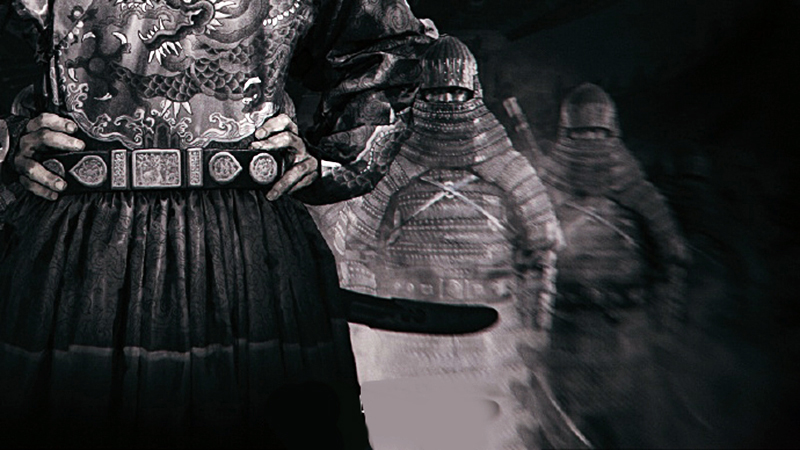.jpg)
The terms were crushing: Song would submit to Jin as a vassal and cede away all of what is today's Hebei and Shanxi regions to the Jin, then pay a staggering payout of 50 million taels of silver, 5 million taels of gold, 1 million packs of silk, 1 million packs of satin, 10,000 horses, 10,000 mules, 10,000 cattle, and 1,000 camels.
Armored Fists: The armored heavy cavalry were also equipped with lances and halberds, they rode in several rows while light cavalry provided archery support from behind. This arrangement was the reverse of the Liao, who often placed light horse archers in front as a screen for the heavy cavalry.But shortly after the Jurchens departed, the Song (now with Kaifeng's siege lifted) reneged on the deal and dispatched rescuing armies several hundred thousand strong to relieve the stranded and embattled Song garrison that still held out stubbornly at Taiyuan. Despite the Song relieve armies' size, they were met with disaster and defeated in battle. Thereafter the Jin defeated the Taiyuan garrison anyway. This time, the Jin came for Kaifeng again, this time there would be no half- measures.
.jpg)
By the 2nd siege the Jurchens arrived with their own array of bombs fired from mangonels and other siege weapons- including massive siege towers, raining great fire upon the defenders.
Prince Wuzhu 兀朮- a relentless cavalry commander and high minister of Jin. Born as the 4th prince of Aguda, the founding emperor of Jin, a natural and ferocious warrior, as a teenager he and his older brother Wolibu orchestrated a suicidally bold attack against the Liao Emperor and his imperial guards during one of his hunting trips. During the battle after expending all his own arrows, he seized a Liao soldier's weapon and continued fighting. He killed eight enemy soldiers and captured five, earning great renown among the best of Jin soldiery. He served under Wolibu in the Jin eastern army (against Kaifeng) in both campaigns and was instrumental in the rapid early Jin success in overrunning Northern Song. At this time the vast majority of the Jin army were cavalry and Iron Pagodas were his shattering vanguard.
After surrounding the city the the Jin began their siege by mid December 1126. The Jin used massive siege towers taller than Kaifeng's walls in order to lob incendiary bombs into the city. The besieged city was captured by the Jurchens in less than two months. On January 9, 1127, the Jurchens broke through and began to sack the conquered city. Emperor Qinzong tried to appease the victors by offering the wealth of the capital. The royal treasury was emptied and the belongings of the city's residents were pillaged. The Song emperor offered his unconditional surrender a few days later.
To nearly all, Northern Song ended with the pillaging of its imperial capital, the enslaving of most of its imperial court, the rape and enslaving of its noblewomen and the abduction of 2 emperors. It was such a magnitude of victory that even the Jin themselves did not expect.
Both Qinzong and his father the retired emperor Huizong were captured along with nearly all of the trapped imperial court- nobles and ministers. The Jurchens then began to sack and pillage Kaifeng. The Northern Song dynasty- which had lasted 167 years came to an end. The captured court- including almost all of the Song imperial family were then made to march north by foot to the Jin capital, over 14,000 people, went on this arduous journey, many never made it. And thus the always-struggling, but also bright golden age of Northern Song was scattered to the wind.
"成者为王,败者为寇 "
“The victor becomes king, the defeated the rebel.” - Chinese idiom
Ironically the Jin themselves were surprised by the sheer scale of their victory. Their forays into the Song heartlands were originally intended as punitive- albeit coordinated military missions of loot and tribute extraction from a weakened golden goose, now the Jurchens found themselves in the position they had not even contemplated, the possession of large tract of a trouble- riddled, leaderless foreign empire- now with no one to negotiate with.

To the Jurchens it looked like the Song was entirely uprooted: the 2 former Song Emperors were now hostage and there was no more "Song" left.
What's more the Jin did not possess either the manpower, resources, nor intention to hemorrhage their own soldiers to garrison thousands of (disloyal) Song cities and suffer attritions against the inevitable conflagrations of Han insurgencies. So the Jin did what was expedient for their interests- they appointed a former Song Prime Minister named Zhang Bangchang (some years ago sent as a hostage to Jin by the Song court) as the emperor of a new puppet dynasty called (Great) "Chu" and then rode back north with their loot and prisoners, leaving Chu to act as a buffer state and oppress their own countrymen on behalf of Jin interests. At least, that was their plan.
Unfortunately an inconspicuous grain of sand slipped through the new order's fingers. There was still a Song prince out there. The 20 year old Prince Zhao Gou- the minor 9th son of the captured Huizong (and younger brother to the unfortunately captured Qinzong) was still around in Hebei. Originally he was en route on a diplomatic mission to meet the Jurchens in the beginning of 1127, when he heard the news that the imperial capital had been sacked he immediately took shelter with a Song commander of the region and slipped back south with a small escort of some 10,000 soldiers. As he made his way south to Shandong and north eastern Henan his escort expanded to some 80,000 soldiers. In June 1127, merely little over 1 month since the puppet state of Chu was created by the Jin, Zhao Gou declared himself emperor at Shangqiu in Henan east of Kaifeng (his posthumous temple name would be Gaozong and we shall refer to him as Gaozong from now on.)
Upon the restoration of the Song emperor the puppet emperor of Chu- the former Prime Minister submitted under the urging of loyalist Song ministers. With Gaozong granting him several titles and privileges for his submission, however Gaozong's advisors were unforgiving and pressed Gaozong to strip him of his titles and force him into suicide by hanging, his 2 subordinates who were flagrant Jin proxies were beheaded, thus ending the Chu emperor who had only ruled 33 days. For this brief window, Kaifeng was in the Song hands again. But with the dissolution of Chu, Jin invaded again in full strength across northern China.
The rapid deterioration of the north and Gaozong's refusal to re-entrench himself at Kaifeng forced the reconstituted Song court into a desperate flight down south, chased every step of the way by Jin pursuers. This flight from the old capital would truly mark the end of the Northern Song.
THE DESPERATE SOUTHERN FLIGHT
Bloody warpath: Jin returned with murderous vengeance, with the death of his older brother Wolibu in 1127, Wuzhu began to gain greater control of the maul of the Jin army, under his elder brother Eliduo and several other brothers, the Jin returned and crushed a nearly unending strings of scattered Song armies across Shandong, and when they were ambushed by a Song army, Wuzhu personally led a counterattack that killed thousands.
The Flight South: Jin (Gold) Gaozong's Flight (Scarlet) Song disjointed territories in remission (Sienna): With the dissolution of Chu, Jin invaded again in strength in all directions, several columns bore down across northern China and even managed to pierce into coastal eastern China and southern China. The rapid deterioration of the north and Gaozong's refusal to re-entrench himself at Kaifeng forced the reconstituted Song court into a desperate flight down south, chased every step of the way by Jin pursuers.
Music: Eternal Beauty
From the Song perspective it had became a frightful flight- that of a hunted prey. Gaozong's escape became a series of temporary itinerary courts, from southern Henan, then in late 1127 to south of the Huai River to central Jiangsu at Yangzhou- arriving by sailing down the Grand Canal, from where the situation became dire. With Shandong now in flames under Jin control in 1128, they headed straight for Gaozong. After breaching through all the Song armies between them, hundreds of Jin cavalry arrived at Tianchang directly due north of Yangzhou, whose garrison the Jin soon defeated.
When Gaozong received the news from his eunuchs he immediately donned his armor and rode out of the city, only a few hours from his pursuers. He then took flight to Zhenjiang (city with a "Zhen" *not the province) after which, to Hangzhou. The court was then partially relocated further south to Hangzhou in his wake.
DISTURBANCES AT HANGZHOU
Unfortunately for Gaozong, Hangzhou (then known as Lin'an) proved an excruciatingly miserable experience for him as well. Song repeatedly sued for peace with Jin but all 13 requests were denied. Immediately after his arrival, Gaozong's politics were almost completely monopolized by powerful senior corrupt eunuchs close to him. To exert unilateral military authority this cabal of eunuchs sponsored an influential general Wang Yuan 王渊 who also had the emperor's favor and ears. This eunuch- backed faction proved to be extremely unpopular- as the eunuchs would seize the houses from locals for their own thus angering the local southerners.
A Dream- like Garden. Located in far southeastern China not far from the East China Sea- Hangzhou was a strategic southern city with stately medieval walls and had long been a vital southern stopping point on the Grand Canal. A lush garden city- it was filled with swaying willows, stately scholar's mansions, and vast horizon of lily pads that bobbed in the ever scenic West Lake.
What's more most of the soldiers who followed Gaozong to Hangzhou were northerners and deeply hated the eunuchs too- blaming them for the loss of their homes. A disgruntled commander of the imperial guards, who came from a long line of honored guards named Miao Fu and a sub commander named Liu Zhengyan (subordinate to Wang Yuan) both hated Wang and thus organized a coup. At this time, only Miao Fu's troops were guarding Gaozong in Hangzhou, while some of the best and most numerous of the Song armies- such as those commanded by veteran generals like Han Shizhong, Zhang Jun, Yang Yizhong, Liu Guangshi and others were stationed far away in the north, west, and other key locations outside of the capital, providing exquisite conditions for the coup.
Flashforward (sans spoilers) the Southern Song Imperial Palace- fully build decades after this era would be nestled along the Fenghuang Shan (Phoenix Hill) it is very unique in that it adopted a very unorthodox asymmetrical design.
On march 1129- scarcely after Gaozong had situated himself at Hangzhou- the conspirators, consisting of many disgruntled officers and their armed soldiers ambushed and killed Wang Yuan and the eunuchs, after which they surrounded the city. Trapped, literally by his soldiery, Gaozong sought to buy time and placate the mutineers, he gave them several of the surviving eunuchs who were promptly butchered right under the walls. They then berated and strongarmed Gaozong to abdicate and demanded he pass the throne to his 3 year old son and having the Empress Dowager as a regent.
The Empress Dowager- attempting to placate their demands then- under strong protestation from the advisors exited the wall to appease the mutineers in person, Miao began with hard reason with her while she retorted that it would be difficult for a female regent to rule even in time of peace, never mind in a continual war with Jin and nearly all of the best generals still abound. Miao then brazenly threatened that if she did not comply she would be stripped naked and slew on the spot. The 2 parties then devolved into angry words and threats. Exasperated, Gaozong relented, he stepped down and his young son was installed in power.
Empress Dowager Meng then took up her role as Regent, but openly made clear she opposed to the coup. She then (in the style of a sovereign's inauguration) issued a general amnesty- and honored her son as a retired emperor with a handful of imperial guards directly loyal to him. The situation remained tense, as Miao Fu soon try to replace the imperial guards around the hostage Gaozong with his own soldiers. What's more all feared they would exile Gaozong further south where he would be unguarded and exposed to assassination. The precarious situation turned when the stationed Song generals afar heard of what had transpired.
Instrumental Song generals: Han Shizong: Zhang Jun 张俊, and (spelled with a different character but same pronunciation in tone) Zhang Jun 张浚. Zhang Jun was a masterful anti- insurgency general and proved his worth in stamping down a litany of armed rebels and bandits inside the empire. After the flight to Hangzhou he would prove an instrumental ally to Yue Fei at court and sponsored Yue Fei's campaign and career. However, despite his former close ties with the general, he ultimately changed his position and allied with Qin Hui and helped to destroy Yue Fei. Then there was the 2nd Zhang Jun, the hawkish and revanchist minister (and one day Chancellor) - he would be decisive to ending the Hangzhou mutiny and steer the Song for stabilization of all of the south and reconquest of the north
When Zhang Jun (minister) who was stationed at his appointed post away from the capital received new of the general amnesty, he became alerted and swiftly dispatched riders to all other major Song commanders informing them of his suspicions. The Song generals were then in turn 1 by 1 informed of his insight on the development. Generals Han Shizhong, Zhang Jun (general,) Liu Guangshi, and Lu Yihao agreed to his urgings and mobilized to join him. In order to not prematurely stir the pot, he also sent an envoy back to Hangzhou to appease the rebels.
According to the Xu Zizhi Tongjian "Continuation to Zizhi Tongjian" when Miao Fu heard that a massive combined army had joined up under Zhang Jun he first had Zhang demoted in absence then he called up his guards (along with the remnants of the slain Wang Yuan's troops) to form a "Red Heart Army" 赤心军. Miao Fu also sought to take Han Shizong's wife Liang Hongyu and son (who were in the capital) as hostage to stop his movement. But an imperial minister still loyal to Gaozong convinced him to instead send Liang and their son Han Yanzhi back to him to appease him. Miao agreed to this position while the minister rejoiced at his stupidity. Regardless, the imperial generals made a proclamation swearing their loyalty to Gaozong and marched in unison on the capital.
Han Shizhong 韩世忠 - a veteran general. Arguably the best proven Song commander at this time, in his youth he proved a renowned warrior in battle against the Tanguts in the west. Afterwards in the southern wars Han infiltrated the fortified lair of the Manichean backed rebel Fang La alone- and personally captured him back to the Song camp- decapitating the rebellion in one fell swoop. When the Jin invaded he guarded Gaozong Emperor on multiple occasions and had close allies in court. He would one day also be a key ally of Yue Fei. Together Han and (later) Yue were among the best of the new generation of Southern Song generals and were given great initiatives in command.
The coup leaders were horrified to learn of the imperial army's march back, and they were forced to return Gaozong back to the palace again. Because the Empress Dowager had long persisted she opposed to the coup she was honored by the reinstated Gaozong. Gaozong bought time (and with the goal of luring the 2 leaders away from him) appointed Miao and Liu Zhengyan as imperial governors and deputies for postings afar. As desperate insurances, Miao and Liu still asked that Gaozong gave them each an iron certificate- immunity from any capital punishment so that they would not be held accountable for the coup.
That same day, the loyalist army arrived at the main camp where the rebel army was stationed and Han Shizhong led the vanguard and destroyed the rebel army, racing to the north gate of Hangzhou. Miao and Liu escaped with 2000 elite soldiers and fled Hangzhou with the iron certificates. They ordered their men set fire to the city in their wake but due to the heavy rain the fire was not started. Upon entering into the city Gaozong raced to Han, held his hand and cried bitterly, then asked him to get rid of the remaining rebel commander in the city who held the palace gate. Han Shizhong's solution was extremely elegant and simple, he made a call for terms, and when they were alone together, Han broke his middle finger and subdued him, then ordered he be beheaded.
Afterwards Gaozong made a public declaration that he will only hold Miao Fu, Liu Zhengyan, and the top commanders responsible, and the junior officers and soldiers will not be held accountable. As a result the remaining Red Heart Army turned on their commanders. Miao and Liu's followers raided several counties but were eventually hunted down and killed. The mutineers had only manage to rule for less than a month. Gaozong was still only 21 year old at this time, though the coup was put down swiftly it did leave both indelible long term and short term marks. In the long term this only reinforced Gaozong- and by extension Song leadership's persistent distrust of autonomous military officials- what's more because one of the pretexts Miao and Liu offered when they removed him from the throne was that Huizong and Qinzong are still alive and his claim was thin, it also likely cemented his long awareness of his extremely tenuous claim to the throne~ and his paranoia about it. However, in the short term, because his throne was literally saved by a dedicated coalition of the hawkish loyalist generals, for the time being, the hawk faction would take over at court for most of the next decade.
EDGE OF THE WORLD
Heavy Jin Dynasty iron visor. Nose slits distinguish this from burial masks as seen from the near contemporary Liao dynasty funerary masks which also did not have eye slits.
Whatever peace Gaozong sought to have reclaimed after the mutiny, however, was quickly shattered again, scarcely months later, The Jin vanguard materialized again- Wuzhu had crossed the Yangtze at the ferry at Majiadu, captured Nanjing and was now veering east toward Hangzhou and the Zhejiang region at full speed. Wuzhu's outmaneuvering meant that the whole of Zhejiang coastal area were exposed and endangered from being flanked from the west. The attack also came at a bad time as after the put down of the coup Han Shizhong had been deployed by Gaozong north to try to stabilize the Anhui and Jiangsu regions thus cannot immediately come to rescue.
Heavy Jin Dynasty iron visor.
Wuzhu's army size differed vastly from sources, 100,000 according to "History of Song," alternatively~ 4,000 according to "History of Jin" under command of 2 of Wuzhu's best commanders. Both figures are suspect, though a light vanguard is likely in such numbers, they are no way enough to take several well fortified cities. The Song figure likely overhyped the Jin soldiery's numbers while the Jin radically downplayed their own losses. The Song general Zhang Jun 张俊 briefly held back the Jin forces allowing Gaozong and his escorts to boarded several large ships and sailed out into the sea toward Fujian.

Meanwhile Wuzhu captured the cities of Ningbo, Shaoxing along the key avenue of the Zhejiang east coast, then finally Hangzhou on January 22, 1130.
The Jurchens still did not relent and pursued Gaozong on a fleet of their own warships. However it was here that the halo of Jin invincibility began to wane. Zhang Gongyu 张公裕 - a Song naval commander soon led his fleet and intercepted the Jin navy around the Zhoushan Islands- a string of jutting islands fanning out from Zhejiang's furthest east. The Song were much better sailors and marines than the Jin and the Jin pursuing navy was either defeated or blocked there.
For thousands of years the imposing rivers of the Yangtze and the mountainous river gorges served as the breakwater for many invading armies from the north and a favorite point of resistance for southern defenders. But in 1129, it did not matter, it was the closest moment- a hair's breath from the Jin ending the Song once and for all.
Unable to secure Gaozong, Wuzhu then had the Jin soldiery sack Hangzhou, Shaoxing, and Ningbo and ravish the surrounding southern countryside.
After sacking Hangzhou and amassing a vast baggage fleet of plundered jewels, treasure, gold and valuables pillaged from across the southern countryside to sail north along the Grand Canal, On March 14, Wuzhu gave up the pursuit for Gaozong and declared the operation completed. He began his return 10 days later by sailing north- killing and looting across his trek home- the rampage included massacring the citizens of Suzhou because of organized resistance. By this time pockets of rebellions had erupted across the south (some earlier than others)- several instance Song circuits fell to rebels and whole regions declared their own independence.
THE SONG REVENGE AT HUANGTIANDANG
Unexpectedly, Wuzhu's treasure laden fleet was confronted on its upward sailing up the canals into the Yangtze River. Han Shizhong had returned leading a large personal fleet of large ocean- sailing junks that had been sailed into the Yangtze to completely trap the Jin fleet at the junction of the river.
The detail of this battle differs between the "History of Jin" and "History of Song- Han Shizhong" but there are also key overlaps. The two navies fought but due to the large size of the ocean going Song junks the Jin crews were unable to board them, what's more the dimensions of the Song ships proved deadly when fired from their impressive vantage. Realizing that Han had bottlenecked their original returning route northward- in fact the sole water way back home for their ships the Jin began to panic.
When he heard of the rapid destruction of Zhejiang and the Song court's desperate flight Han- who was stationed at Jiangsu loaded all of the materials and precious resources he can find and put all of them on his fleet. Meanwhile, his then comrade Yue Fei fought with the Jin forces.
The "History of Song" described that Wuzhu dispatched envoys to sue for peace but all were rejected, exasperated, the Jin then sent out landing detachments to scout for paths of escape, 1 detachment was sent to scout the nearby temple hill and another the river bank. Han anticipated this and when the Jin crested around the Jinshan Temple (similar but another) to scout ahead, hundreds of Han's hidden men attacked the Jin and fought for several boughts- capturing 2 Jin commanders in the process.
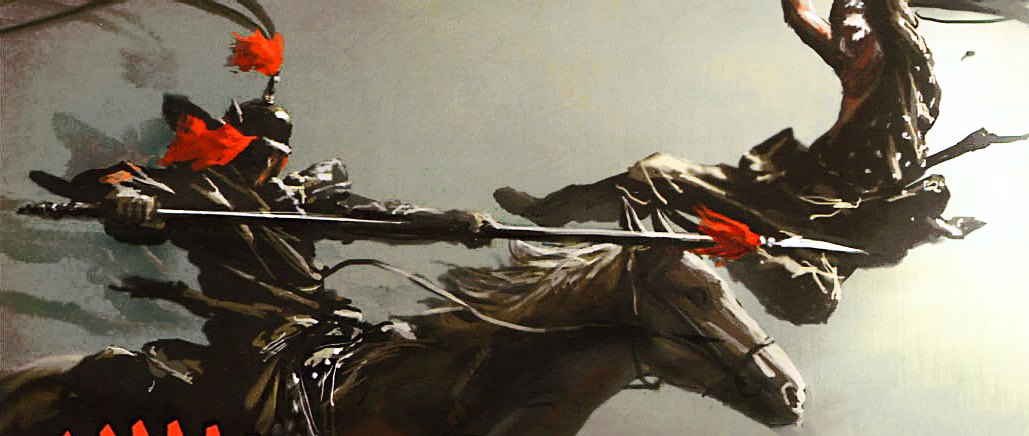%20(1).jpg)
What's more, war drums personally signally by his wife Lady Liang coordinated the stratagem and prevented the Jin armies from rescuing each other, holding back the detachment at the banks. It should be mentioned that in both Song and Jin versions, Lady Liang's drums were mentioned. According to the "History of Jin" the sound of drums and drums lasted from night to dawn.
Art by Shuai Zhang: Wrestlers- especially female wrestlers were somewhat scandalous in the Song. Like their male counterparts, they barely chose to wear much coverings (similar to modern Japanese Sumo wrestlers) and both men and women only chose to cover their intimate leg regions.
In this version- which had been adopted into a famous Peking Opera: After she met Han Shizhong she they became enamored with each other and he took her as a concubine. After Han's first wife died, Liang was then made into his wife. She then went on to save the Song with her husband.
On the naval front, the Jin fled westwards, hoping to put distance between themselves and Han's navy, Han pursued relentlessly. The two war chiefs battled around the river near the narrow bulge of the Yantze directly due north of Yangtze called Huangtiandang (lit: "Yellow Sky Bend") , thereby trapping the more numerous but much more tightly packed Jin fleet, while Han's larger but less numerous ocean sailing junks completely blocked their escape.
.jpg)
"History of Song Dynasty" says that the two armies fought for 48 days, while "History of Jin Dynasty" says it was 30 days. Both "History of Jin" and "History of Song" say that the Jin army dug a 30-li-long river in one day.
Whenever Jin soldiers tried to break through the ocean junk- lines the Song sailors deployed massive iron hooks tied with ropes and have the ships sank. Both the Song as well as the Jin account described the ending of this battle in similar fashion. Driven to the brink of death, the Jin forces- who were trapped to the narrow north bank of the Yangtze and unable to move their fleet east resorted to a desperate plan.
Figure Model & Photo: 浮生66记
They found a local who told them that there is a narrow strip of land due north and if they can continue to dig in that direction they can eventually ran into one of the small subsidiaries of the Grand Canal and can then sail their ships northward back into the Grand Canal and onward further north.
In remarkable secrecy, the Jin soldiers managed to dig their impromptu canal which was more than 30 li long. Upon it's completion the fleet would be able to sail north again. However in order to throw Han Shizhong off, before their organized pull out the Jin raced again to engage the Song fleet in battle, this time the Jin soldiers deployed many incendiary fire arrows which caught fire on the massive sails of Han's ocean going junks. A number of Han's ships were burned down and many Song sailors died, while the Jin slipped away through the canal. Though a tactical victory for the Jin it dissipated in their immediate wake, strategically the Song restored control of the South from around Nanjing to all the way into Anhui and Jiangsu again. From this point on, the Jin would never be able to penetrate so deep into what would become Southern Song's heartland.
A new age had began, and the Song- it seemed, would stay around for far longer than had seemed.
Music: Village of Khitai
THE SONG RECONSTITUTES
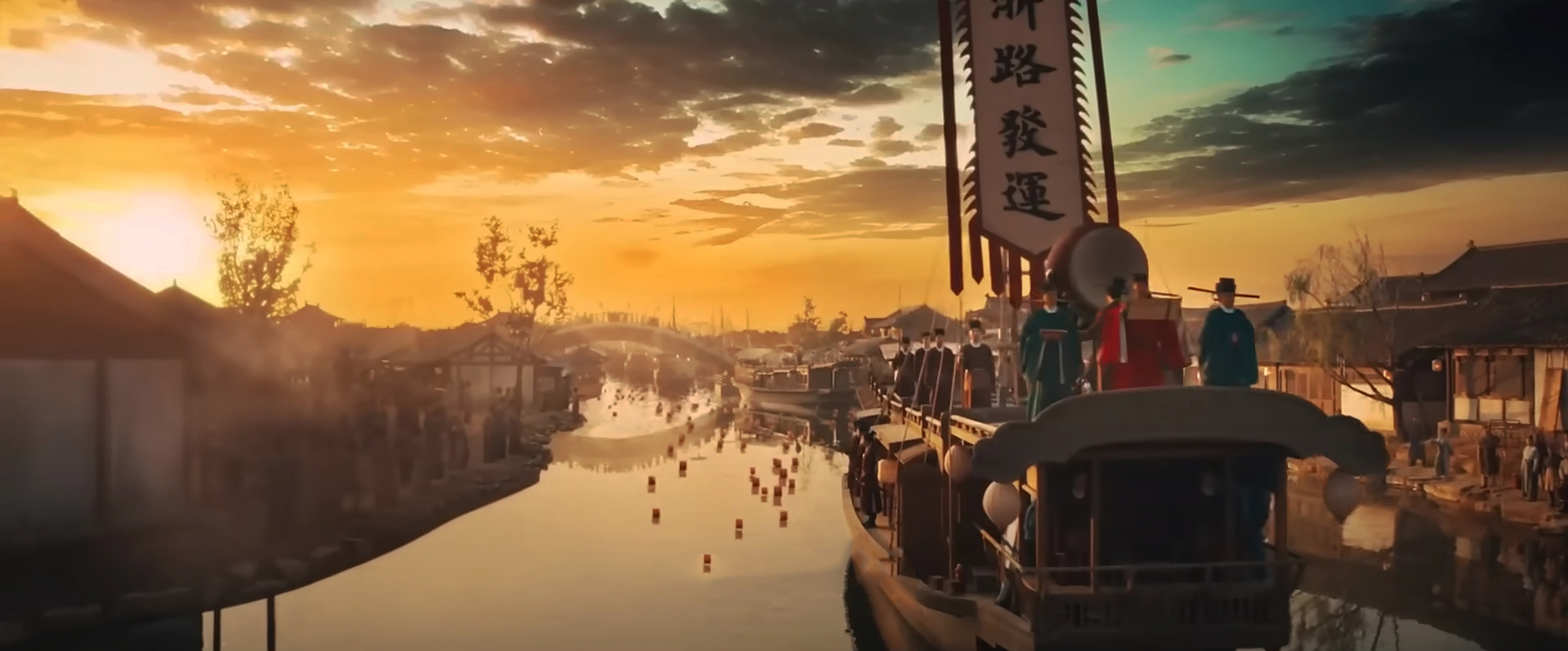
Despite the ending note of Hangtiandang, Han Shizhong had managed to decisively stabilize the Song south position and create the space needed for Song to earn a true respite. The battle also truly shattered the illusion of Jin invincibility. Jin's 1129- 1130 forays accounted the deepest they would ever plunge into southern China. It morphed into a close call~ too close for both rival empires. The Song came at a hair's breath away of being extinguished and the Jin's main southern foray also came a hair's breath away from being completely annihilated. The closeness of such a call would compel Jin's political leadership as well as military leadership to reconsider the danger of overextension in the south.
The Jin would began negotiations with the Song (with fruitless results and trying to foster turncoats but talk is still talk.) Operationally Jin tried to raise another ethnic Han puppet state in the north to use as a buffer and attack dog against the south- the newly consecrated puppet state of Qi ("Great Qi" or Da Qi.) The 1130 experience proved such a headache for the Jin war machine that Wuzhu and the top leadership of Jin would avoid invading east from the Jiangsu and Grand Canal in the future, instead in the next decade they would try to shift their invasion west instead along the mountains of Shaanxi and Sichuan.
Regardless, in the southeast, Zhejiang would be stabilized. Hangzhou would soon heal and became the metropolis and imperial palace city in the south- and not soon after the most populous city in the 13th century. Despite calamity after calamity, despite horrors and outrages, there would be a chance.
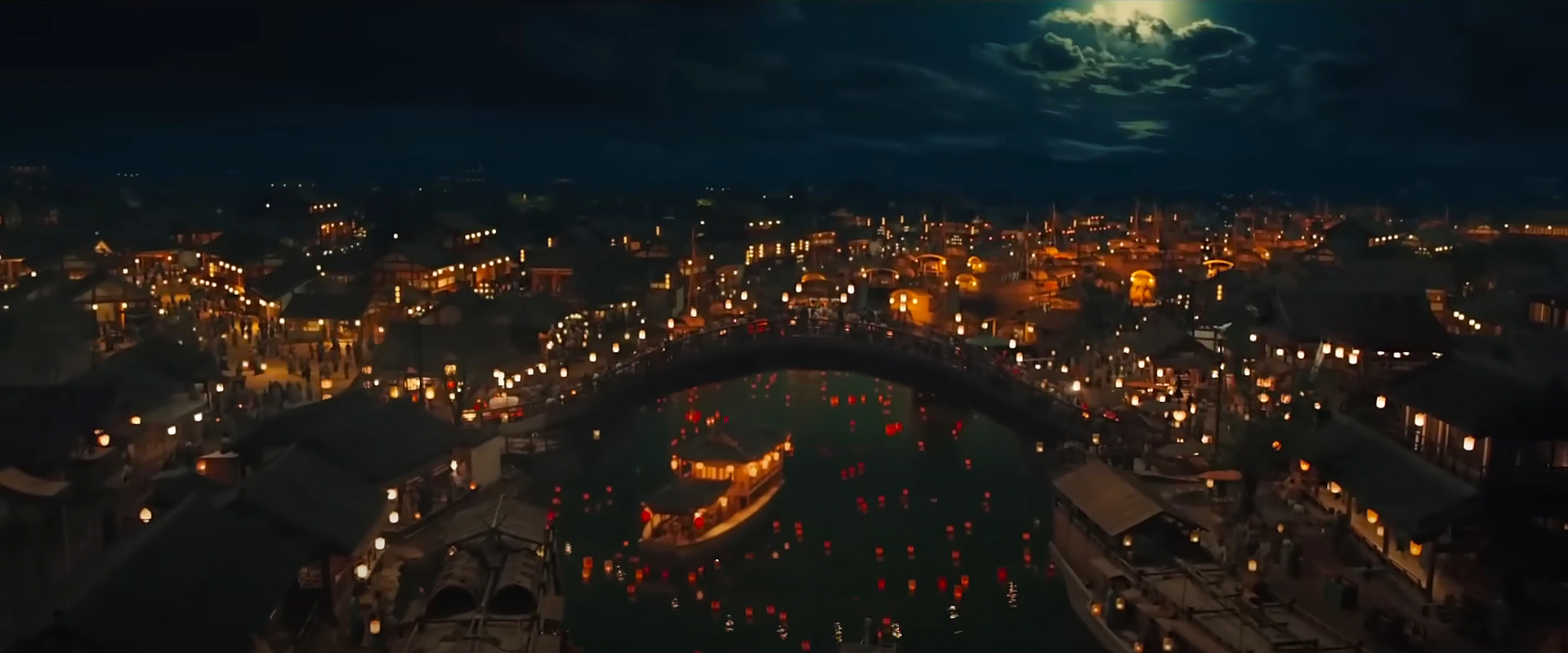
For the time being, stalwart heroes of the hour like Han Shizhong would be entrusted with the main imperial army and march north to wrestle Jiangsu and Anhui in the east coast from Jin.
ANARCHY AND PUPPETS
Meanwhile, while Han's proverbial arm was trading blows in the east, the perfect opportunity arose for another Song army to strike, this time from the west. This arm would soon be helmed by none other than the hero of the next hour, and one of the most renowned cultural heroes of China: Yue Fei.
The Age of Uprisings: The Song around 1130. The Jin raised puppet state of "Qi" in black: consisting most of what was Central Plains. The Song (Scarlet) was severely strained, due to the constant relocation of the imperial court and the relentless Jin (Gold) pursuit, much of what would be the Southern Song were isolated and not in constant communication with the new imperial core. Several regions in the south thereby fell to powerful bandits and rebels. Though peasant uprisings had cropped up before the Jin invasion- as those done by Song Jiang (protagonist of "Water Margin") and Fang La: rebels in this era had became exponentially more powerful and numbered in hundreds of thousands. At this time the Jin began to try to exert pressure against the Song contact line by using the puppet state of Qi to attack into the center, while the Jin angled to attack from the west via Sichuan/ Shaanxi.
It is against these local warlords- some of them with armies in the hundreds of thousands that Yue Fei went on his steady war path north.
Hi all. I want to take the time and thank you for reading this far and staying with me through the holiday season. I had originally wanted to pump out a long chapter purely focused on Yue Fei but it kept getting longer and longer until I had to deliberately write out a chapter devoted to the geopolitical context of his era as setup for his campaigns for the next chapter. That article will come out soon, and in the future I will bash the 2 articles into 1 combined article on Yue Fei's biography. In the meantime I will also write out several articles focused on some of the interesting enemies he faced and units he deployed in his campaigns- such as the Beiwei cavalry. The lost mountains and rivers await to be reclaimed!
Figure by QinyiErjian
➢ ☯ Futsunomitama
➢ ☯ MK Celahir
➢ ☯ Muramasa
➢ ☯ Thomas Vieira
➢ ☯ Vincent Ho (FerrumFlos1st)
➢ ☯ BurenErdene Altankhuyag
➢ ☯ Stephen D Rynerson
➢ ☯ Peter Hellman
➢ ☯ SunB

%20(1).jpg)

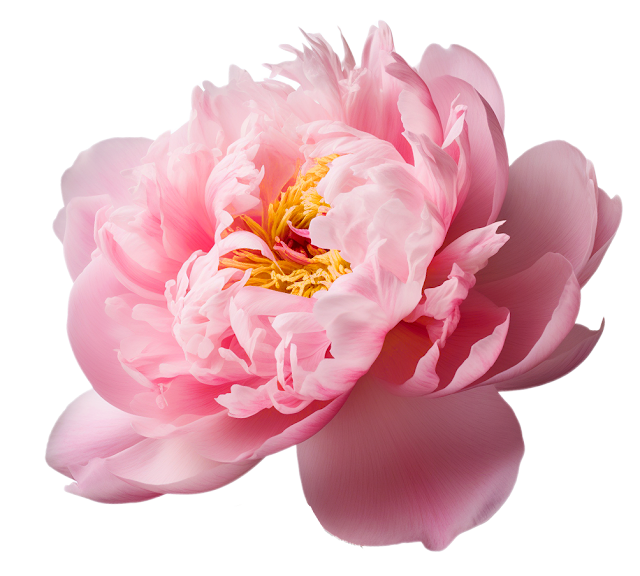





%20(1).jpg)


.jpg)
%20(3).jpg)

.jpg)
.jpg)
_flags_(51169543864).png)
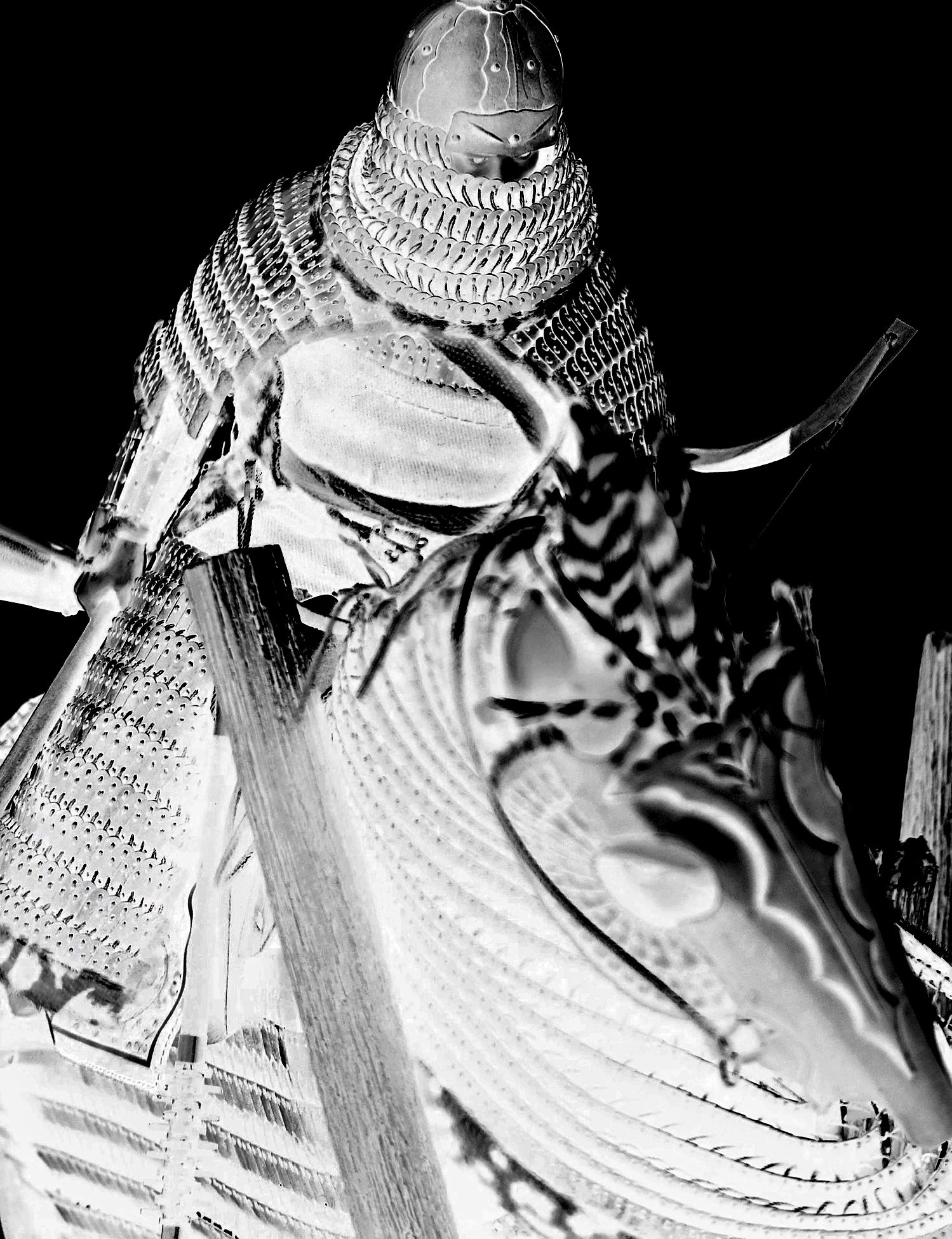


.jpg)






.jpg)




.jpg)
.jpg)

.jpg)
.jpg)





.jpg)
.jpg)


.png)






.gif)




.jpg)

%20(1)%20(2).jpg)


.jpg)
.jpg)

.jpg)
.jpg)
%20a.jpg)
.jpg)
.jpg)
%20(2).png)
.jpg)


.jpg)
.jpg)



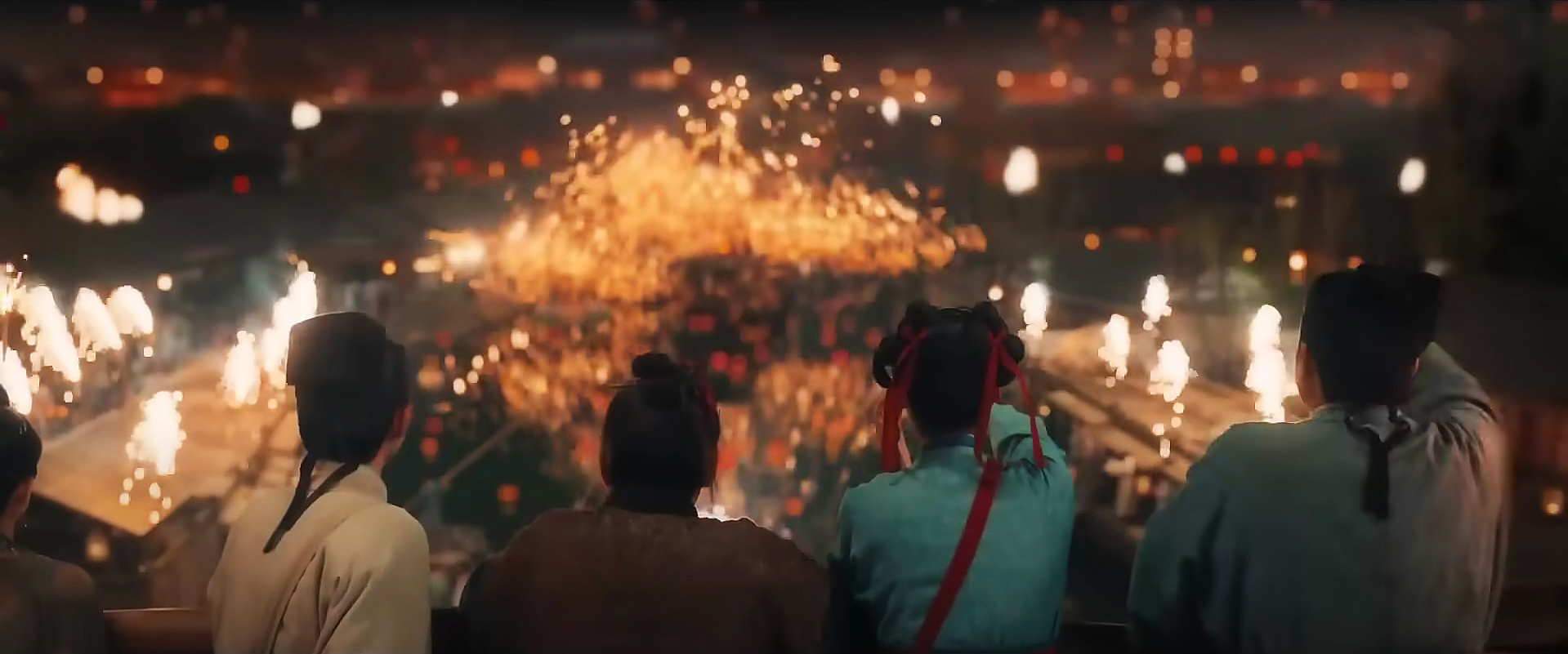



.jpg)
.jpg)









Comments
https://discord.gg/MzCYM3dp